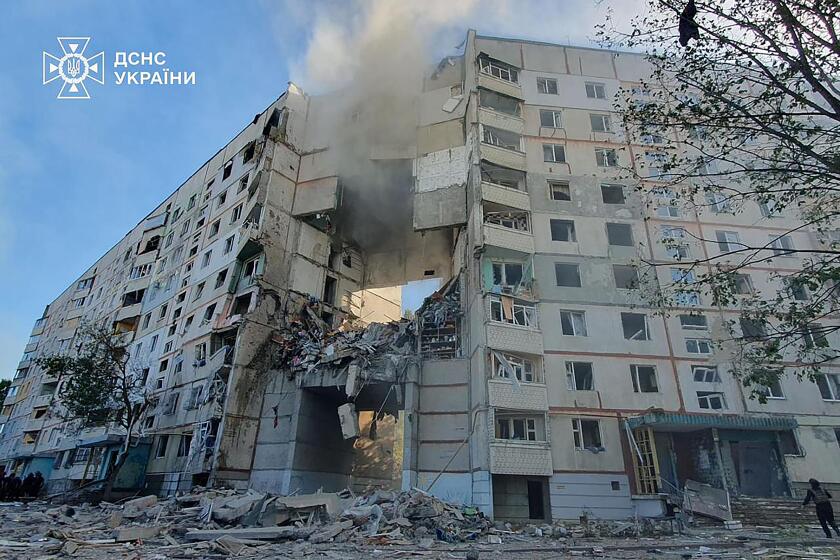Little Havana Hasn’t Forgiven or Forgotten the Seizure of Elian
On the block of Northwest Second Street where Elian Gonzalez lived for a time, Guillermina Ferrer remembers how federal agents seized the Cuban boy in an early morning raid. She remembers, too, the tear gas that wafted into her small, one-story home and made it hard for her to breathe.
“It was a crime, and so violent, to come in here and take a young boy like that,” said Ferrer, 77.
The U.S. government’s seizure of Elian so that the boy, then 6, could be returned to his father in Cuba still galls many Cuban Americans after nearly five years. It is as unpleasantly vivid for them as Ferrer’s memory of the tear gas that she swallowed.
Early on April 22, 2000, agents acting under the direction of Janet Reno, then U.S. attorney general, used a battering ram to smash the door of the home next to Ferrer’s in Miami’s Little Havana district where Elian was living with relatives.
The boy had survived a shipwreck that claimed the lives of his mother and 10 others fleeing Cuba. He was then caught in an international custody battle.
During the raid, federal officers sprayed demonstrators with tear gas to prevent them from interfering.
Some of Ferrer’s neighbors -- nine people from nearby homes and four others who were behind police barricades -- have sued the federal government, seeking $3.25 million for what they say are long-term injuries and emotional distress caused by the raid.
In closing arguments Monday in U.S. District Court in Miami, a Justice Department lawyer said the tear-gassing of bystanders was an “unavoidable consequence” and did not warrant the government paying damages to anyone who might have been injured.
Attorney Michael Hurley, representing 12 of the plaintiffs, called the gassing an “overreaction” by the Clinton administration. Some of those suing have claimed lingering injuries.
A verdict in the non-jury trial was not expected before the middle of the month.
On Thanksgiving Day 1999, Elian was rescued from the Atlantic. For many Cubans who live in the United States, there is still something miraculous about the boy’s survival.
“God put the dolphins in the ocean to keep him safe,” said Armanda Marta Santos, 79, as she swept the sidewalk in front of her home on Northwest Second Street. That sense of divine intervention is one reason many Cuban Americans became passionately involved with Elian and did not want him to return to Cuba, she said.
Elian, now 11, lives in Cardenas, Cuba, with his father, Juan Miguel, and his stepmother. The boy has appeared at political rallies with Cuban President Fidel Castro, who has attended the youngster’s birthday parties.
These days, it’s quiet in the Miami neighborhood of tidy but modest one-story homes faced with stucco, painted white, coffee and cranberry red, and protected by fences and iron bars on the windows.
A truck trundles by in the afternoon, hawking fresh vegetables to homemakers; schoolchildren walking home are doused by a rare winter shower. Last year, the block become a bit more diverse: A Mexican family moved in.
On weekends, there is a trickle of curious outsiders, fewer than before, but sometimes including visitors from as far away as Poland or Japan.
They come to see the one-story cinder-block residence, now a shrine and museum, where Elian lived with relatives before the SWAT team grabbed him from a bedroom closet.
The home now belongs to Delfin Gonzalez, 68, Elian’s great uncle and a retired fisherman. It has been filled with the toys, stuffed animals and clothes given to Elian by Cuban Americans and other well-wishers, as well as religious imagery and emblems of Cuban and American nationhood.
The ambience is somewhere between Toys R Us and the boutiques of Lourdes. A banner in the room where Elian was found denounces an act that “will live in infamy forever.”
On that April morning, said Delfin Gonzalez, the U.S. government behaved as inhumanely as Cuba’s leaders. “It’s the same way that Fidel Castro works, without laws,” he said. The Clinton administration said it acted to reunite Elian with his father in accordance with international obligations and the boy’s welfare after the Miami relatives refused to turn the boy over to authorities.
That decision enraged hundreds of Cuban Americans, who after the raid on what has become known as Casa Elian -- Elian’s house -- blocked traffic, threw rocks, set fires and fought with police.
Among Cuban Americans, it is a common tenet that the anger about what happened on this Miami street cost the Democrats the White House in 2000. It also helped doom Sen. John F. Kerry (D-Mass.) in November’s presidential election.
“It further sealed the identification of Cuban Americans with Republican politics and the perception that the Democrats cannot be trusted when it comes to Cuba” said Hans de Salas del Valle, research associate at the Institute for Cuban and Cuban-American Studies at the University of Miami.
Joanna Dorte, 38, a relatively recent arrival on the block, knew Elian’s father slightly in Cuba. A little over two years ago, she came to America with her son, Antonio Luis Zayas, now 5. One recent morning, she arrived across the street from the Gonzalez home to do housework. When asked if she had been in the place of Elian’s father what would she want for her own child, Dorte didn’t hesitate.
“I’d prefer that he be here in the United States,” Dorte said. “Because life in Cuba is very difficult, and there is no hope.”
More to Read
Sign up for Essential California
The most important California stories and recommendations in your inbox every morning.
You may occasionally receive promotional content from the Los Angeles Times.










